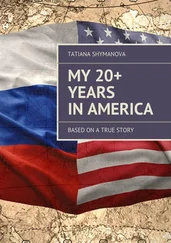Johann Bernstorff - My Three Years in America
Здесь есть возможность читать онлайн «Johann Bernstorff - My Three Years in America» — ознакомительный отрывок электронной книги совершенно бесплатно, а после прочтения отрывка купить полную версию. В некоторых случаях можно слушать аудио, скачать через торрент в формате fb2 и присутствует краткое содержание. Жанр: foreign_antique, foreign_prose, на английском языке. Описание произведения, (предисловие) а так же отзывы посетителей доступны на портале библиотеки ЛибКат.
- Название:My Three Years in America
- Автор:
- Жанр:
- Год:неизвестен
- ISBN:нет данных
- Рейтинг книги:4 / 5. Голосов: 1
-
Избранное:Добавить в избранное
- Отзывы:
-
Ваша оценка:
- 80
- 1
- 2
- 3
- 4
- 5
My Three Years in America: краткое содержание, описание и аннотация
Предлагаем к чтению аннотацию, описание, краткое содержание или предисловие (зависит от того, что написал сам автор книги «My Three Years in America»). Если вы не нашли необходимую информацию о книге — напишите в комментариях, мы постараемся отыскать её.
My Three Years in America — читать онлайн ознакомительный отрывок
Ниже представлен текст книги, разбитый по страницам. Система сохранения места последней прочитанной страницы, позволяет с удобством читать онлайн бесплатно книгу «My Three Years in America», без необходимости каждый раз заново искать на чём Вы остановились. Поставьте закладку, и сможете в любой момент перейти на страницу, на которой закончили чтение.
Интервал:
Закладка:
Generally speaking, the political situation in the United States before the Five-Years War was as follows: On the one hand, owing to the influence of English ideas, which I have already mentioned, it was to be expected that a feeling of sympathy with the Entente would probably preponderate in the public mind; while on the other hand, owing to the general indifference that prevailed with regard to all that happened in Europe, and to the strong pacifist tendencies, no interference in the war was to be expected from America, unless unforeseen circumstances provoked it. At all events it was to be feared that the inflammability of the Americans' feelings would once again be under-estimated in Germany, as it had been already. It has never been properly understood in our country, despite the fact that the Manila and Venezuela affairs might have taught us a lesson in this respect. The juxtaposition in the American people's character of Pacifism and an impulsive lust of war should have been known to us, if more sedulous attention had been paid in Germany to American conditions and characteristics. The American judges affairs in Europe, partly from the standpoint of his own private sentiment of justice, and partly under the guidance of merely emotional values; but not, as was generally supposed in Germany, simply from a cold and business-like point of view. If this had been reckoned with in Germany, the terrible effect upon public opinion in America of the invasion of Belgium and of the sinking of the Lusitania – particularly in view of the influence of English propaganda – would have been adequately valued from the start.
On May 17th, 1915, in a report addressed to the Imperial Chancellor, I wrote as follows:
"It is not a bit of good glossing over things. Our best plan, therefore, is frankly to acknowledge that our propaganda in this country has, as the result of the Lusitania incident, completely collapsed. To everyone who is familiar with the American character this could have been foreseen. I therefore beg leave to point out in time, that another event like the present one would certainly mean war with the United States. Side by side in the American character there lie two apparently completely contradictory traits. The cool, calculating man of business is not recognizable when he is deeply moved and excited – that is to say, when he is actuated by what is here called 'emotion.' At such moments he can be compared only to an hysterical woman, to whom talking is of no avail. The only hope is to gain time while the attack passes over. At present it is impossible to foresee what will be the outcome of the Lusitania incident. I can only hope that we shall survive it without war. Be this as it may, however, we can only resume our propaganda when the storm has subsided."
Here I should like to intrude a few of my own views regarding the importance of public opinion in the United States.
In Europe, where people are constantly hearing about the truly extraordinary and far-reaching authority of the American President – the London Times once said that, after the overthrow of the Russian Czar, the President of the United States was the last remaining autocrat – it is difficult to form a correct estimate of the power of public opinion in the Union. In America, just as no mayor can with impunity ignore the public opinion of his city, and no governor the public opinion of his state, so the President of the Republic, despite his far-reaching authority, cannot for long run counter to the public opinion of his country. The fact has often been emphasized by Mr. Wilson himself, among others, that the American President must "keep his ear to the ground" – that is to say, must pay strict attention to public opinion and act in harmony with it. For the American statesman, whose highest ambition consists either in being re-elected, or at least in seeing his party returned to power, any other course would amount to political suicide; for any attempt at swimming against the tide will certainly be avenged at the next elections.
It must be remembered that public opinion in the United States is seldom so homogeneous and unanimous a thing as, for example, in England. Particularly in questions of foreign politics, public opinion in the Union, stretching, as it does, over a whole continent, reacts in widely varying ways in different localities, and to a very different degree. Thus, in the States bordering on the Atlantic coast, which are more closely in touch with the Old World, there is, as a rule, a very definite public opinion on European questions, while the West remains more or less indifferent. On the other hand, in the Gulf States a very lively interest is taken by the public in the Mexican problem, and the Pacific States are closely concerned with the Japanese question, matters which arouse hardly more than academic interest in other localities. This is also reflected in the American Daily Press, which does not produce papers exerting equal influence over the whole nation, but rather, in accordance with the customary geographical division of the Union into seven economic spheres of interest – namely, New York, New England, Middle Atlantic States, Southern States, Middle West, Western and Pacific States, comprises seven different daily presses, each of which gives first place to quite a different problem from the rest. It is true that the New York Press is certainly the most important mirror of American public opinion on European questions. Nevertheless, this importance should not lead to the erroneous assumption that the American Press and the New York Press are synonymous terms. The perusal of the latter does not suffice for the formation of a reliable judgment of American public opinion, with regard to certain questions which concern the whole nation; rather it is necessary also to study the leading papers of New England, the Middle Atlantic States, and particularly the West. The reports of German and English correspondents on feeling in America, which, as so often happens, are based purely on the New York Press, frequently play one false, if one relies on them for an estimate of the public opinion of the whole nation. The "Associated Press," therefore, makes it a rule with all questions of national importance, not only to reproduce extracts from the New York Press, but also to publish précis of the opinions of at least fifty leading journals from all parts of the Union.
The American daily papers are more important as a medium for influencing public opinion than as a mirror for reflecting it. The United States is the land of propaganda par excellence! Every important enterprise, of no matter what nature, has its Press agent; the greatest of all is the propaganda lasting for months, which is carried on before the biennial elections, and of the magnitude of which it is difficult for the average European to gain any conception. It is therefore not surprising that the political leaders of the country make very wide use of the Press in important questions of foreign politics, to influence public opinion in favor of the Government policy. Not only the great news agencies, but also all leading newspapers of the Union maintain their permanent special correspondents in Washington, and these are received almost daily by the Secretary of State, and as a rule once a week by the President. The information that they receive at these interviews they communicate to their papers in the greatest detail, without naming the high officials from whom it has emanated, and in this way they naturally act as megaphones through which the views of the Government are spread throughout the whole country. In foreign questions it was often striking how newspapers would hold back their comments until they had received in this way a mot d'ordre from Washington.
Of course this possibility for the Government to create opinion on concrete questions only applies so long as a firm public opinion has not already set in. As soon as the process of "crystallization," as it is called, is complete, there is nothing left for the Government but to follow the preponderating public opinion. Even a man like Mr. Wilson, who possesses an unusually high degree of self-will, has always followed public opinion, for the correct interpretation of which – apart from his own proverbial instinct – he commands the services of his secretary, Mr. Tumulty, and a large staff, as well as the organization of the Democratic party, which spreads through the length and breadth of the country. If, in a few exceptional cases, the President has set himself in opposition to public opinion, we might be sure that it would not be long before he again set his course on theirs.
Читать дальшеИнтервал:
Закладка:
Похожие книги на «My Three Years in America»
Представляем Вашему вниманию похожие книги на «My Three Years in America» списком для выбора. Мы отобрали схожую по названию и смыслу литературу в надежде предоставить читателям больше вариантов отыскать новые, интересные, ещё непрочитанные произведения.
Обсуждение, отзывы о книге «My Three Years in America» и просто собственные мнения читателей. Оставьте ваши комментарии, напишите, что Вы думаете о произведении, его смысле или главных героях. Укажите что конкретно понравилось, а что нет, и почему Вы так считаете.












